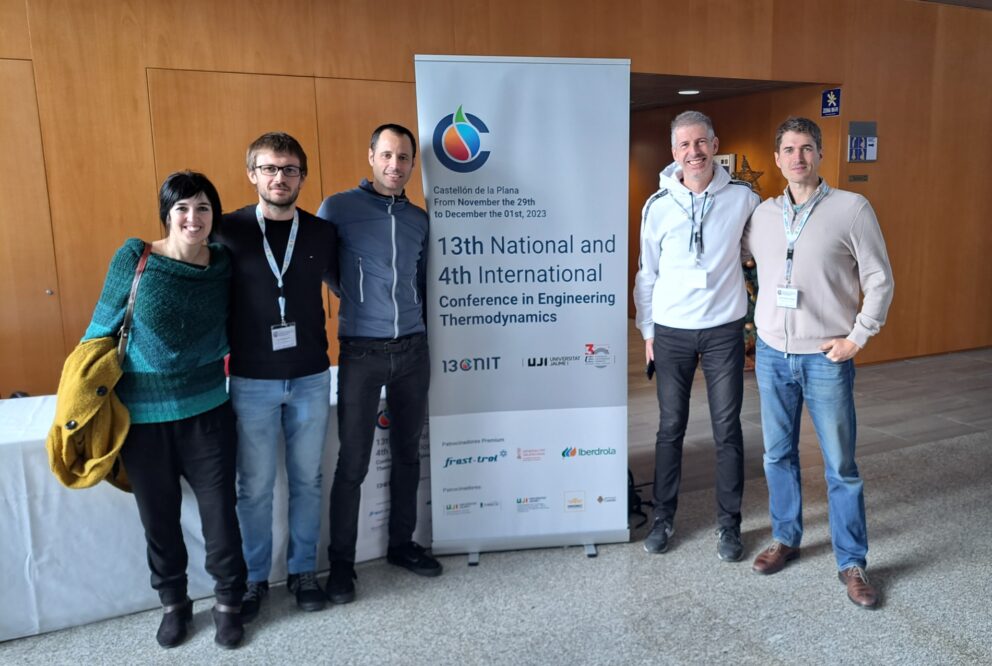ENEDIko kideek 13th National and 4th International Conference on Engineering Thermodynamics (13CNIT) delakoan parte hartu zuten. Azaroaren 29tik (asteazkena) 2023ko abenduaren 1era (ostirala) egin zen, Jaume I.a Unibertsitatean (Castelló de la Plana), “Aurrerapenak Ingeniaritza Termodinamikoan, garapen iraunkorraren gakoa” lelopean.
https://www.fue.uji.es/13cnit
Lehenengo edizioaren ondoren, 1999an gertatu zena, kongresua handituz joan da, eta azken lau edizioetan nazioartekotu egin da, haren eragina indartzeko eta aurkeztutako lanen, ikertzaileen, irakasleen eta enpresa parte-hartzaileen kopurua handitzeko. Horrela, informazio-truke, aurrerapen tekniko eta sinergia gehiago lortu dira ekitaldi honetako parte-hartzaileen artean.
Guztira, ENEDIk 14 txosten eta poster egin ditu, taldearen hiru lan-ildo nagusiekin: eraikinen fisika, instalazio termikoak eta energia termikoaren biltegiratzea. Hona hemen aurkeztutako lan guztien izenburuak:
- Consideration in the design of a Local Energy Community: A case study in Guzman
- Thermal stability of the D-Mannitol-Dulcitol eutectic mixture for thermal storage applications
- Experimental assessment of a plate-based LHTES: comparison between compressed expanded graphite plates infiltrated with a PCM and bulk PCM plates macroencapsulated in aluminium boxes
- Development of a semi-virtual platform to test microgeneration hybrid thermal systems: analysis of the performance of a Stirling micro-CHP installation in a single-family house
- Calculation of the cooling and heating solar efficiency in passive skin solution systems
- Experimental method for estimating the influence of the solar radiation on the inner surface heat flux of opaque elements of building envelopes
- Overall uncertainty analysis of zonal indoor air temperature measurement in an in-use office building
- On the use of TGA for the study of degradation of thermal energy storage materials: analysis of the influence of evaporation
- Heat cost allocation in multi-apartment buildings with collective systems
- Project-based learning as a tool for improving both technical and interpersonal skills of thermal engineering students
- Exploring the Integration of Photovoltaic Panels and Heat Pumps for Public Residential Buildings Sustainability
- Method for obtaining an accurate model of photovoltaic forced ventilated façade (PV-FVF)
- Method of merging Thermoeconomics and Machine Learning to calculate the effects of climate change on building thermal systems
- ARCAS: A novel multicriteria methodology to assess the renovation of social housing buildings

